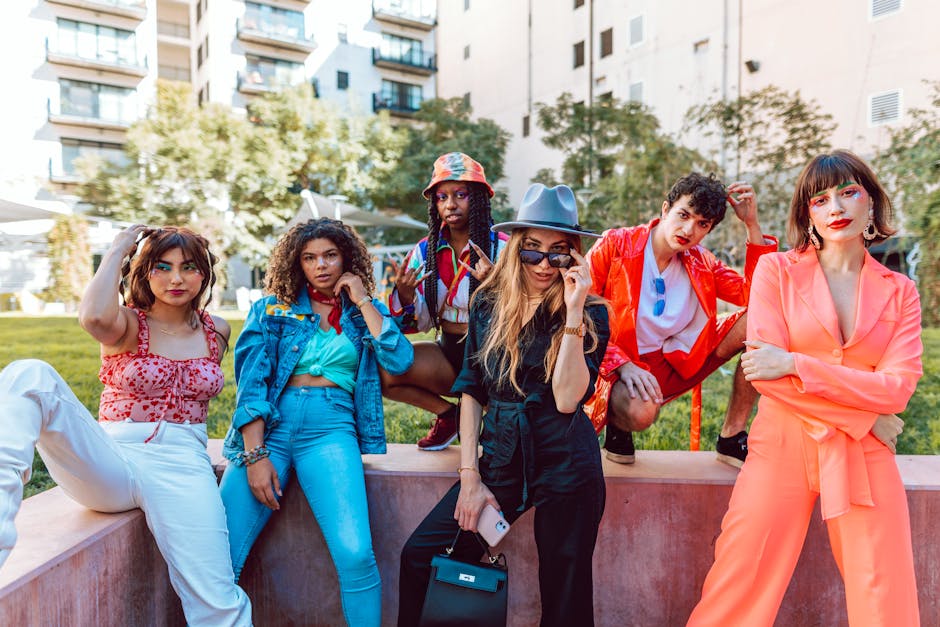The Influence of Pop Culture on Global Social Movements
Pop culture has long been a driving force in shaping societal attitudes and sparking movements that challenge the status quo. From the music of the civil rights era to viral social media campaigns in recent years, the intersection of popular culture and activism reveals a powerful synergy capable of inspiring widespread change. By resonating with diverse audiences and leveraging global platforms, pop culture serves as a megaphone for critical issues, amplifying voices that might otherwise go unheard. The connection between entertainment, art, and social justice continues to redefine how we engage with pressing topics on both local and global scales.

The Role of Media in Bridging Pop Culture and Activism
Media has always played a crucial role in linking pop culture to social movements. Television, radio, films, and now digital platforms provide accessible ways for messages of change to reach the masses. Artists such as Bob Dylan during the civil rights movement used their music to echo calls for justice, while shows like The Fresh Prince of Bel-Air tackled issues like racism and class disparity in ways that resonated with viewers worldwide.
Social media platforms have further revolutionized this connection. Platforms like Instagram, TikTok, and Twitter allow activists to harness the influence of celebrities and creators who already have massive followings. For example, movements such as #MeToo gained momentum partly due to public figures sharing their stories online. These platforms facilitate rapid dissemination of information while creating communities around shared causes.
The visual nature of platforms like Instagram also enables artists and designers to contribute to activism through their work. Bold graphics, protest posters, and memes can encapsulate complex ideas into digestible forms that spread quickly across cultures and languages. Media’s capacity to bridge entertainment and advocacy ensures that pop culture remains an indispensable ally in driving awareness and action.
Music as a Catalyst for Change
Music has often served as a rallying cry during pivotal moments in history. Genres like hip-hop, punk rock, and reggae have carried messages of rebellion and resistance against systems of oppression. During apartheid in South Africa, artists such as Miriam Makeba used their music to highlight injustices while raising awareness internationally about racial segregation.
In contemporary times, musicians continue to amplify social movements. Beyoncé’s 2016 Super Bowl performance celebrated Black culture while subtly addressing issues like police brutality through her imagery and lyrics. Similarly, artists like Childish Gambino with “This Is America” confront systemic racism head-on through provocative storytelling intertwined with striking visuals.
Even outside overt political messaging, music connects emotionally with listeners in ways that can inspire empathy or solidarity. Concerts supporting causes like Live Aid or benefit albums for disaster relief demonstrate music’s ability not only to entertain but also mobilize resources for meaningful impact globally.
Fashion as an Expression of Activism
Fashion is another realm where pop culture intersects with activism. Clothing has historically been used as a form of protest, consider slogans on T-shirts or color symbolism during marches. For instance, suffragettes wore white as a statement of purity during their campaign for women’s voting rights.
In modern times, fashion brands have aligned themselves with social causes by producing collections that support sustainability or equality. Designers like Stella McCartney champion eco-friendly practices while others use runway shows to make political statements, for example, Prabal Gurung showcasing feminist slogans during New York Fashion Week.
Streetwear brands have also contributed significantly by incorporating messages about racial justice or climate change into their designs. These garments become wearable statements that enable individuals to display their values publicly while supporting broader campaigns.
- Slogan T-shirts featuring calls-to-action
- Sustainable fashion lines promoting environmental awareness
- Collaborations between designers and activists for cause-focused collections
The integration between fashion trends and activism demonstrates how everyday choices can reflect collective aspirations toward progress.
Pop Culture’s Influence on Youth-Led Movements
Youth are often at the forefront of transformative social movements, fueled by pop culture influences that resonate deeply within their experiences. Figures like Greta Thunberg have inspired millions of young people globally to participate in climate strikes, her rise being closely tied not only to her message but also how she was amplified through cultural channels.
The advent of platforms such as TikTok has given younger generations new tools for organizing and spreading awareness creatively. Viral dances or challenges tied to causes can engage participants who may not initially identify as activists but find themselves drawn into movements organically via these mediums.
| Movement | Pop Culture Influence |
|---|---|
| #FridaysForFuture (Climate Action) | Inspired by Greta Thunberg; amplified through youth-oriented platforms like Instagram |
| #BlackLivesMatter | Driven by celebrity endorsements; supported through music videos, films addressing systemic racism |
| #MarchForOurLives (Gun Control) | Energized by student leaders; featured prominently in news media and documentaries |
These examples underline how pop culture elements interweave with activism led by younger generations eager for change.
Reflection on Pop Culture’s Enduring Impact on Activism
The fusion of pop culture with social movements is both dynamic and enduring. By tapping into emotions through music, storytelling through films or fashion statements worn on streets around the world (not just celebrity-driven campaigns but grassroots efforts bolstered by accessible platforms) pop culture transcends its traditional purpose of entertainment to become a force for meaningful dialogue and action.
This relationship prompts us all (consumers of media) to recognize our roles within these narratives actively. Whether it’s engaging critically with content we consume or supporting creators using their craft responsibly for advocacy purposes, the choices we make hold ripple effects far beyond individual consumption patterns.
The interplay between creative expression within mainstream channels reshaping societal attitudes suggests limitless potential when leveraged consciously toward building equitable futures worldwide, a call anyone inspired enough can answer simply through participation wherever they stand today.
This article was generated by AI